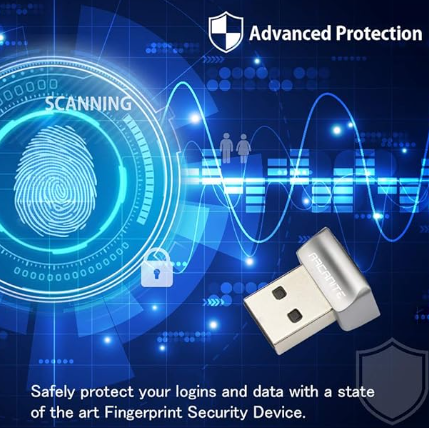In an age where data breaches, cyber-attacks, and digital crimes are steadily on the rise, encryption has emerged as a vital line of defence, preserving the confidentiality of data, and keeping sensitive information private. However, as we dive deeper into the world of digital forensics, it becomes evident that encryption presents both indispensable advantages and substantial challenges.
What is Encryption?
Encryption is a method of safeguarding data by converting plain text into an unreadable format, or ciphertext, using algorithms and encryption keys. Only those who possess the decryption key that corresponds to the encryption key, can decipher the ciphertext back into plain text, thus ensuring that the information remains secret during transmission or at rest.
Two common types of encryptions are symmetric encryption (where the same key is used for encryption and decryption) and asymmetric encryption (where two different keys – a public one for encryption and a private one for decryption – are used).
Importance of Encryption
Encryption is no longer just a luxury or an add-on feature; it is an absolute necessity for any organisation or individual who values their digital security.
The role of encryption in maintaining digital security and privacy can be complex and varied:
Shielding Sensitive Data and Preserving Privacy
The most fundamental purpose of encryption is to secure data, whether it’s stored on a device or being transmitted over a network. When encrypted, even if the data is intercepted or stolen, it remains unreadable and useless to the unauthorised party.
As more of our lives move online, encryption is crucial for maintaining privacy. It helps keep personal conversations, financial transactions, and sensitive health information secure.
Ensuring Compliance
For many organisations, encryption is a legal requirement around the globe. Various data protection laws and regulations, like General Data Protection Regulation (GDPR), Health Insurance Portability and Accountability Act (HIPAA), and Payment Card Industry Data Security Standard (PCI DSS), mandate that businesses safeguard certain types of data through encryption or similar methods.
Building Trust
For businesses, encryption can help build trust with customers. By employing encryption, businesses assure their customers that they value and protect their privacy.
Encryption: A Continuing Necessity
Given the increasing threat of data breaches and cyber-attacks, the importance of encryption cannot be overstated. Encryption is a robust and reliable method for maintaining privacy, and ensuring secure communication.
Encryption can be broken; and it comes with its own set of challenges, but the protection it provides, far outweighs these difficulties. Moreover, advancements in cryptographic methods are continually improving encryption’s strength and efficiency.
Challenges of Encryption in Digital Forensics
While encryption is vital for protecting sensitive information, it can pose considerable challenges to professionals in the field of digital forensics. Let’s delve into these challenges and how they affect the digital forensic process.
Deciphering Encrypted Data
The primary purpose of encryption is to prevent access to data without your permission. Thus, it stands to reason that the foremost challenge for those investigating cyber-crime, is when a criminal encrypts their own communication and data. Gaining access to this data without the decryption key can be very difficult and deprives investigators of vital evidence. When strong encryption methods are used, it can be virtually impossible to break the cipher without the right key.
Time and Resource Constraints
Decryption, even, when possible, is often a highly resource-intensive process. Encryption is designed to be complex to protect against ‘brute force’ attacks – attempts to break encryption by trying all possible keys. Consequently, the decryption process can be incredibly time-consuming, delaying investigations and necessitating powerful computing resources.
Legal and Ethical Considerations
Digital forensic investigations must adhere to specific legal and ethical standards. The need to protect individual privacy rights often conflicts with the need to access and analyse data. Laws vary widely from one jurisdiction to another, and the act of decryption itself can sometimes be viewed as an invasion of privacy.
The Future of Encryption and Digital Forensics
Despite the challenges that encryption presents to digital forensics, it remains a critical part of data security. As we continue to navigate the digital era, these challenges underscore the need for ongoing developments in the field of digital forensics. This includes refining existing methodologies, developing new techniques, and establishing robust legal and ethical guidelines.
Furthermore, education and collaboration are vital. Digital forensic professionals need to stay abreast of evolving encryption methods, and organisations must work together to share knowledge and resources. While encryption is a hurdle in digital forensic investigations, it is also a catalyst, pushing the industry to evolve and innovate.
Ultimately, the relationship between encryption and digital forensics is one of complex interdependence. Encryption will continue to pose challenges, but through perseverance and innovation, digital forensics will continue to find ways to overcome them. This dynamic interplay between encryption and digital forensics will undeniably shape the future of digital security and investigation.









I absolutely love this text! It’s incredibly insightful and highlights the importance of ongoing developments in the field of digital forensics, as well as the need to stay educated and collaborative. The positive perspective on the relationship between encryption and digital forensics as a “catalyst” for innovation is especially inspiring. Overall, a great read!
Hi Liam, I am glad that you enjoyed the read!
This article on cyber security and the challenges it presents in today’s digital landscape was an eye-opener. The evolving nature of cyber threats and the increasing complexity of our interconnected world make it crucial for individuals and organizations to prioritize their security measures. SyberSec Solutions seems to offer a comprehensive approach to addressing these challenges.
In a world where technology continues to advance at an exponential rate, my mind ponders the deeper implications of cyber security. As we rely more and more on digital systems and interconnected devices, how do we strike a balance between convenience and security? How can we ensure the protection of our sensitive information without compromising the benefits that technology brings? I would love to hear your thoughts on this delicate equilibrium.
Hello Dave
Balancing convenience and security in our digital world is indeed a critical challenge. To achieve this, continuous education and awareness are key. Implementing a multi-layered security approach, such as using firewalls, encryption, and multi-factor authentication, can help protect sensitive information without hindering convenience.
Moreover, technology companies are increasingly developing user-friendly security solutions that integrate seamlessly into our daily routines. Regular updates and proactive monitoring also play vital roles in maintaining this balance.
Ultimately, fostering a security-first culture where both convenience and protection are prioritized is essential. By staying informed and adapting to new threats, we can enjoy the benefits of technology while safeguarding our digital lives.
Thank you for your thoughtful comment!
Khalil
This article highlights the importance of encryption, which shields data from interception and unauthorized access. With the sophistication of cybercriminals, it is important to provide a robust layer of protection against cyber threats and potential data breaches.
Keeping your data safe from cybercriminals is especially important in today’s world. There is a new field that college graduates are entering in massive numbers. Cybersecurity is the hot topic on today’s career path. Had not thought of getting a VPN but after reading your article, it looks like a possibility
Hi Khalil,
Encryption is an absolute game-changer in cybersecurity, isn’t it? Reading your article confirmed how important it is to protect sensitive data. Although encryption provides strong protection, there are drawbacks. Accessibility and security can be challenging to balance, don’t you think? How will encryption change to combat new online threats and maintain user-friendliness? Continue your excellent work of bringing such essential cybersecurity issues to light.
Absolutely Sara! Encryption is a powerful tool in protecting sensitive data, especially during transmission. It adds an extra layer of security against unauthorized access and it is always evolving to keep ahead of hackers.
Unfortunately, one of the prices we pay for security is that there may be some inconvenience when we want to access our data, and for those not tech savvy the inconvenience of a user interface that is not intuitive.
I am grateful for your continued support Sara.